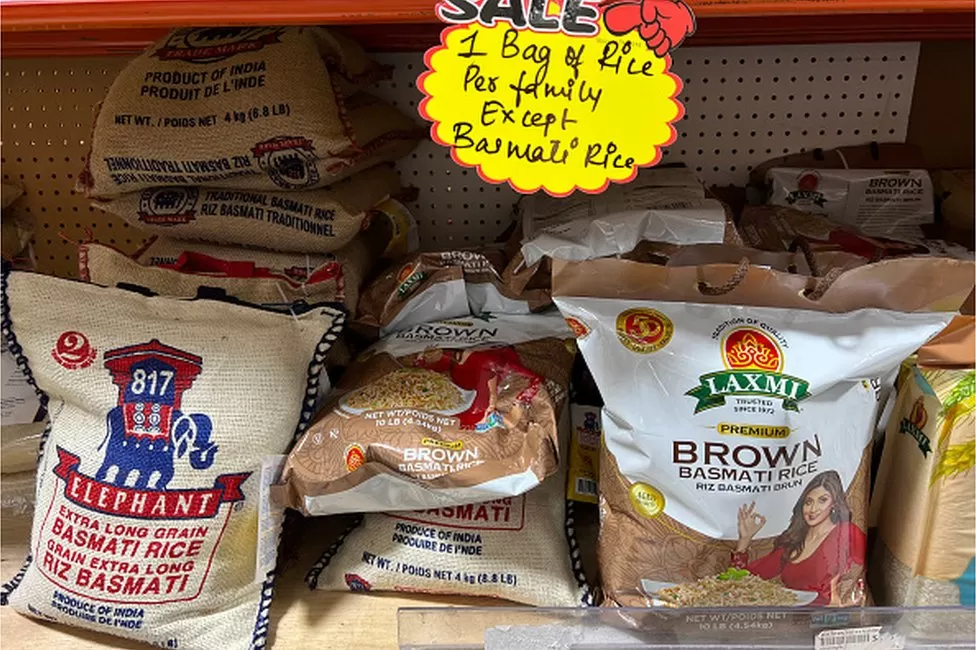India’s Rice Export Ban and its Implications
India’s recent ban on the exports of non-basmati white rice has triggered fears of a potential global food crisis, raising concerns about rising prices, supply shortages, and the impact on vulnerable populations worldwide. The ban, enacted on 20 July, was aimed at curbing domestic price hikes but has ignited a chain reaction with far-reaching consequences.
The Breadth of India’s Rice Trade
India, a key player in the global rice trade, accounts for around 40% of the world’s rice exports, making it a linchpin in ensuring food security for many countries. The global rice trade primarily revolves around four main categories: Indica rice, basmati rice, Japonica rice, and glutinous rice. While India’s dominance lies in the Indica white rice category, its export ban has profound implications across the spectrum.
The Impact on Global Markets
The sudden ban on non-basmati white rice exports has triggered panic buying and supply chain disruptions, causing prices to surge in international markets. Major importers of Indian rice, including China, the Philippines, and Nigeria, have expressed concerns over potential supply shortages and soaring prices.
A Perfect Storm of Factors
The ban comes at a precarious time when multiple factors are converging to strain global rice markets. Climatic conditions, including uneven monsoon rains in India and floods in Pakistan, have impacted rice supplies. Rising costs of production due to higher fertilizer prices have further compounded the issue. The ongoing global inflation and devaluation of currencies are increasing import costs for numerous countries, thereby elevating the risk of higher food prices.
India’s Stockpile and Food Inflation Concerns
India’s move to halt non-basmati rice exports is partially driven by a need to address domestic food inflation. The country has a significant stockpile of rice, with over 41 million tonnes stored in public granaries. However, rising domestic rice prices, fueled by factors like erratic weather and increased production costs, have added political pressure on the Indian government as it approaches general elections.
The Call for Responsible Leadership
Experts stress the need for India to play a responsible role in global food security. The ban has raised concerns about the reliability of India as a consistent supplier of rice. Additionally, the ban’s impact on vulnerable populations, who dedicate a larger portion of their income to buying food, underscores the potential social consequences.
Lessons from Global Food Export Bans
The ban on rice exports from India is part of a larger trend of countries imposing export restrictions on food commodities. These restrictions have the potential to disrupt global food markets and impact millions who rely on these commodities for sustenance. While such measures are taken in response to various crises, they often lead to unintended consequences and further instability.
India’s Way Forward
While the ban on non-basmati white rice exports might be a precautionary measure, experts suggest that India’s position as a responsible leader in the global food trade necessitates a thoughtful approach. The interconnected nature of the global food system emphasizes the importance of maintaining stable supply chains to prevent widespread food crises.
Immediate Impact on Global Rice Markets
India’s abrupt decision to ban the exports of non-basmati white rice has sent shockwaves through global rice markets. The ban, introduced to curb domestic inflation, has raised concerns about supply shortages, rising prices, and the vulnerability of countries that heavily rely on Indian rice imports.
The Role of India in the Global Rice Trade
As the world’s largest rice exporter, accounting for approximately 40% of global rice trade, India plays a critical role in ensuring a stable food supply for many nations. While diverse rice varieties are traded globally, India’s dominant position lies in the export of Indica white rice, making its ban particularly impactful.
Unraveling Global Food Security
The ban’s repercussions extend to various aspects of global food security. Importing countries, including China, the Philippines, and Nigeria, are concerned about potential supply gaps and price surges. Additionally, countries in Asia, where rice consumption is a significant source of calories, could face challenges due to reduced availability and higher prices.
Confluence of Pressing Factors
The timing of the export ban intersects with a confluence of factors that strain global rice markets. Adverse climatic conditions, such as irregular monsoon rains and floods, have affected rice production. Escalating production costs due to rising fertilizer prices have further aggravated the situation. Moreover, global inflation and currency devaluation are increasing import expenses.
India’s Rice Stockpile and Domestic Inflation
India’s decision to halt non-basmati rice exports is influenced by concerns about domestic food inflation. With a substantial stockpile of over 41 million tonnes of rice, India aims to manage rising rice prices at home. However, these price hikes have created political challenges for the government, especially ahead of upcoming elections.
Striving for Responsible Global Leadership
Experts emphasize that India’s role as a key player in global food security calls for responsible leadership. The ban raises questions about India’s reliability as a consistent rice supplier. Moreover, vulnerable populations, disproportionately affected by rising food prices, face potential hardships.
Lessons from Past Food Export Bans
The ban on non-basmati white rice exports echoes a broader trend of countries imposing export restrictions on essential food commodities. These restrictions, although implemented to address immediate challenges, can have unintended consequences, destabilizing global food markets and affecting millions.
A Path Forward for India
While the ban may be temporary and precautionary, experts advocate for a measured approach that considers the larger implications of global food security. Given the intricate interconnectedness of the global food system, maintaining stable supply chains is crucial to prevent far-reaching food crises.




